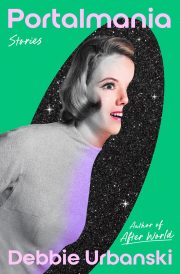Two Surveys
Posted by Victoria Strauss for Writer Beware
 Two fascinating surveys appeared this week. They look at opposite ends of the writing business, but dovetail in interesting ways. (This is going to be a long post, so please bear with me.)
Two fascinating surveys appeared this week. They look at opposite ends of the writing business, but dovetail in interesting ways. (This is going to be a long post, so please bear with me.)
The Writers’ Workshop Survey of Professional Authors
In March, the Writers’ Workshop, a UK-based writers’ consultancy, launched a survey of traditionally published authors. The aim: to discover how authors feel about their publishers in a time of rapid change, where “it has become possible – arguably for the first time in history – for authors to detach themselves from publishers.”
The survey results were posted this week, and they make for interesting reading. Authors are generally happy with a number of aspects of the traditional publishing process–notably, the editing they receive.
Around 75% of authors rated their editorial input as having been good or (more commonly) excellent. Just 14% disagreed…
Similarly – and again contrary to many stories about declining standards – authors rate their publishers extremely highly on copy-editing, proof-reading, page design and so forth. More than 80% of authors regarded their publishers as being good-to-excellent in these areas…
On the matters of cover design and jacket copy, authors remained broadly positive. About three-fifths of authors were highly satisfied with the way these things turned out. The remainder were, on the whole, ‘somewhat’ satisfied.
Marketing, however, was a different story. A majority of authors felt they weren’t adequately consulted on their publishers’ marketing plans, that their skills and strengths weren’t adequately utilized, and that they had little input or control (ah yes–I know the feeling). About half the respondents felt that communication by the publisher was poor, and nearly half said that their publishers never sought feedback from them.
 And while there is much grumbling in the writing community about the lack of publisher loyalty, with publishers no longer willing to stick with writers over several books while they build an audience, authors are just as fickle. 40% of survey respondents said they’d move to another house if given the chance. 22% weren’t sure.
And while there is much grumbling in the writing community about the lack of publisher loyalty, with publishers no longer willing to stick with writers over several books while they build an audience, authors are just as fickle. 40% of survey respondents said they’d move to another house if given the chance. 22% weren’t sure.
Harry Bingham, who wrote the survey summary, concludes:
One, authors actually love publishing. It’s clear from much of the commentary we received that authors know publishers do a hard, essential and wonderful job…But that’s not enough. In truth, it never was, but the world of today is changing fast and authors can glimpse a new mobility just round the corner. As one author commented, it’s ‘Look after your authors, or die.’ Quite so.
Two, these things are simple. Breathtakingly so. I’ve written most of this post while sitting in one of the unrenovated parts of the John Radcliffe Hospital in Oxford. Unlike the gleaming buildings around it, this part had paint peeling from the walls, curtains that looked to be left over from the 1970s, and a toilet with a high and dripping cistern. Yet in the corner of the unit, someone had put a big cardboard box, above which there was taped a sign: ‘PATIENT FEEDBACK AND SUGGESTIONS PLEASE!’
Publishers have better paintwork, cleaner curtains and only ever the most delightful of toilets. But no box. And it’s the box which matters.
I do have a few caveats. First, the survey sample was small–just 321 respondents (the survey summary notes that “[a]bout two-thirds of respondents were either with a ‘Big 6’ publisher or a major independent,” which raises the additional question of what kinds of publishers the remaining third were talking about).
Second, there are different kinds of marketing–for instance, the stuff a publisher does long before publication (catalogs, ARCs, trade shows, advertising, etc.) and what it does post-publication. Authors naturally tend to focus on the second kind of marketing, and to gloss over the first, which is equally, if not more, important. It would have been useful if the survey had made that distinction.
Third (and of course there’s no way to test this), I can’t help wondering whether, if this survey had been done ten, or twenty, or even thirty years ago, the results would have been much different. Authors can be unreliable narrators, and marketing is an area where hope and expectation often clash unpleasantly with reality–something that I think has always been so. On the other hand, as Bingham points out, we are living in an age where it’s not only possible, but viable, for authors to kick their publishers to the curb…so his final point remains compelling. Publishers need a box.
But before you do decide to take a pass on traditional publishing and join the ranks of self-publishers, you might want to take a look at survey number two.
The Taleist Self-Publishing Survey
In February, Taleist launched a self-publishing survey, with the aim of discovering, among other things:
– What the top earning self-publishers have in common
– What marketing seems to be working
– How much the average self-publisher is earning in royalties
– What types of outside assistance really make a difference
The results are in, and their title says a lot: Not a Gold Rush.
To get the full survey, you have to go to Amazon (here’s a breakdown of the various chapters) but here are some interesting tidbits (for more detailed analyses, see these posts from Catherine Ryan Howard and Joel Friedlander):
– 10% of self-publishing authors earn 75% of royalties–a statistic that’s eerily similar to the income breakout in traditional publishing. (Only about 60% of the more than 1,000 respondents were willing to answer questions about their earnings.)
– Half the authors earned less than $500 in 2011.
– A quarter of books probably won’t make back the authors’ production expenses.
– Earnings were sharply defined by genre. Romance writers earned 170% more than others, with literary fiction authors earning the least.
– Authors who sought outside help (editing, copy editing, proofreading, cover design) earned more than those who didn’t.
– The 29% of respondents who went from a traditional publisher to self-publishing earned twice as much on their own as they did from their publishers.
– The most financially successful self-publishers write more than their peers, and spend less time marketing. In fact, those self-publishers who marketed the most earned the least.
Fascinating information, all in all. For me, one of the things that’s most unexpected is the way that many of the results parallel the realities of traditional publishing. A tiny percent of authors earning the bulk of the income; most authors unable to make a living wage; the importance of editing and design; the market dominance of romance–all these things suggest (perhaps) that there are universal truths of authorship that transcend context.
Again, though, there are some caveats. The survey sample was sizeable–but how self-selecting might it have been? For instance, the majority of respondents were US-based (72%). Taleist acknowledges this:
For a start, no one knows what the total population of self-publishers look like so we can’t know for sure how closely our sample of 1,007 respondents represents that community. It seems likely that with a sample this size we will have good representation but do the experiences of our respondents match yours? Where are the differences? What do you agree with? What did you disagree with? What else would you like to know?
Also, as Nate Hoffelder of The Digital Reader points out, the survey needs to be considered in context: “The thing is, no matter how little those authors made while self-publishing their ebooks, on average they are almost certainly better off than if they did not have the option of self-publishing.” Survey results support this: only 5% of respondents said that they considered themselves unsuccessful, regardless of how much they earned–reminding us that “success” is about much more than money.
Caveats aside, we now have a lot more information about self-publishers and self-publishing than was available before. As survey authors Dave Comford and Steven Lewis say (quoted in The Guardian),
The majority of the information out there is about the outliers, whose success is inspiring, but as we can now confirm bears scant resemblance to the experience of most authors.
It’s a valuable counter to the hype that surrounds self-publishing, and hopefully gives authors who are considering this alternative more tools with which to realistically evaluate their goals.



